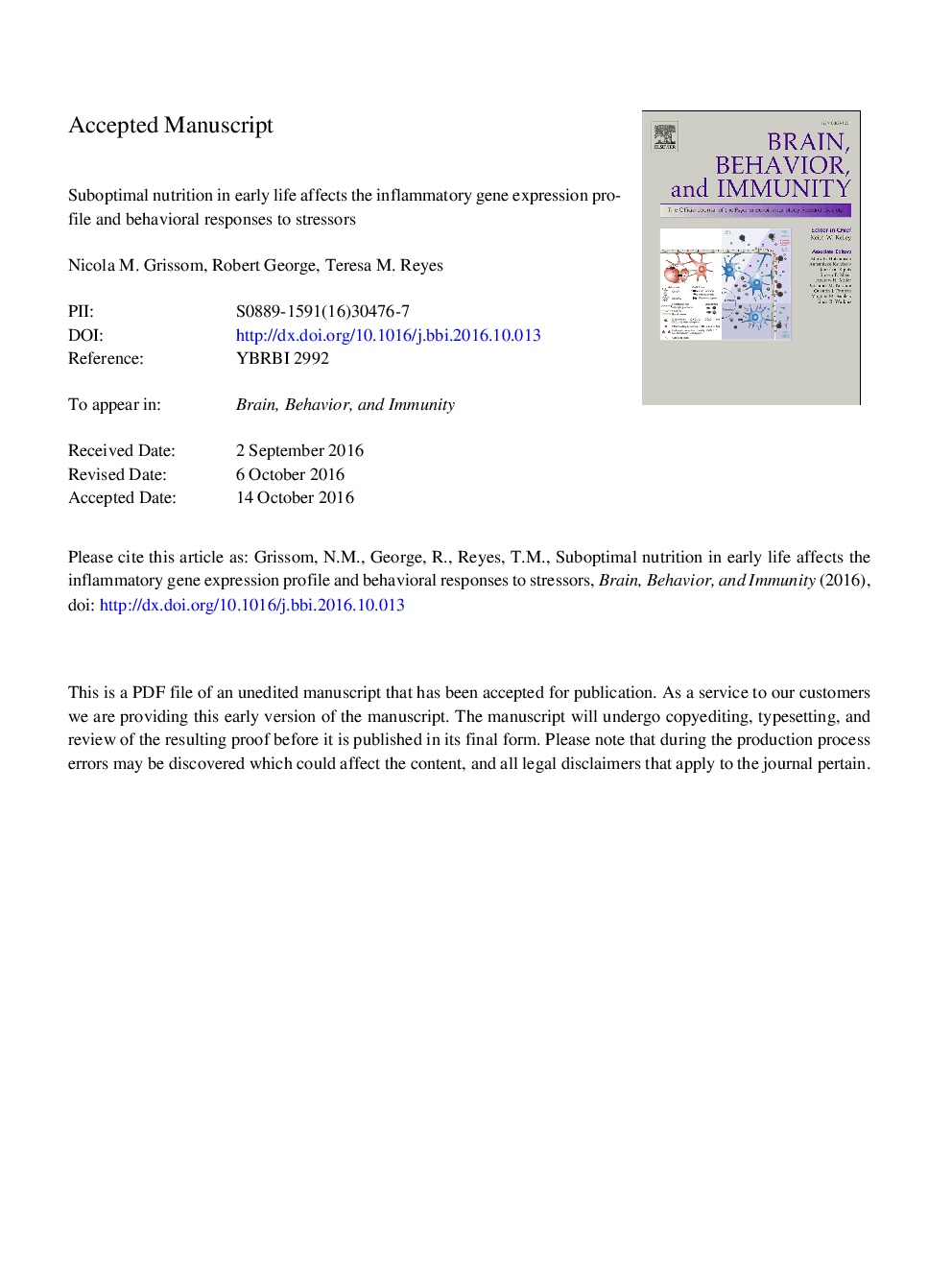ترجمه فارسی عنوان مقاله
تغذیه سوپتویمال در اوایل زندگی بر مشخصات بیان ژن التهابی و پاسخ های رفتاری به عوامل استرس زا تاثیر می گذارد
عنوان انگلیسی
Suboptimal nutrition in early life affects the inflammatory gene expression profile and behavioral responses to stressors
| کد مقاله | سال انتشار | تعداد صفحات مقاله انگلیسی |
|---|---|---|
| 120331 | 2017 | 41 صفحه PDF |
منبع

Publisher : Elsevier - Science Direct (الزویر - ساینس دایرکت)
Journal : Brain, Behavior, and Immunity, Volume 63, July 2017, Pages 115-126
ترجمه کلمات کلیدی
استرس رژیم پریناتال، چربی بالا، کم پروتئین، سیتوکین، کیموکین، ارتجاعی، رفتار بیمار،
کلمات کلیدی انگلیسی
Stressor; Perinatal diet; High fat; Low protein; Cytokine; Chemokine; Resilient; Sickness behavior;

